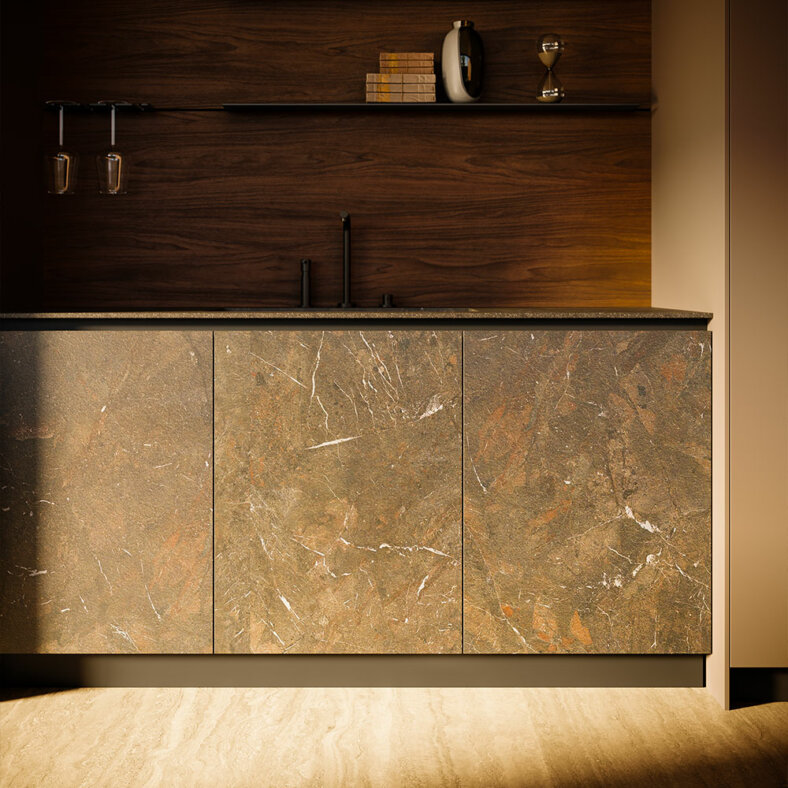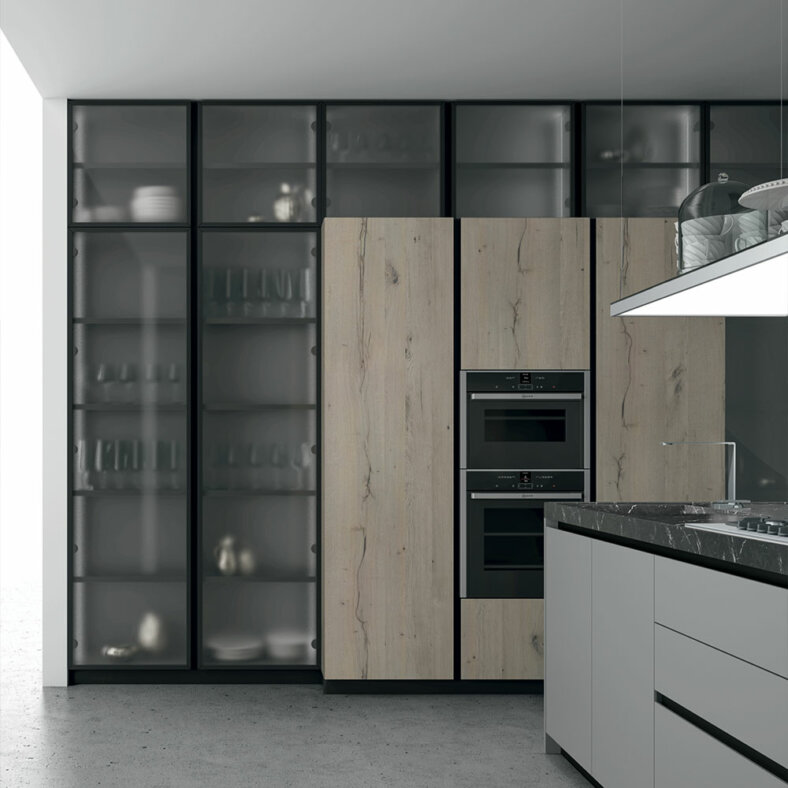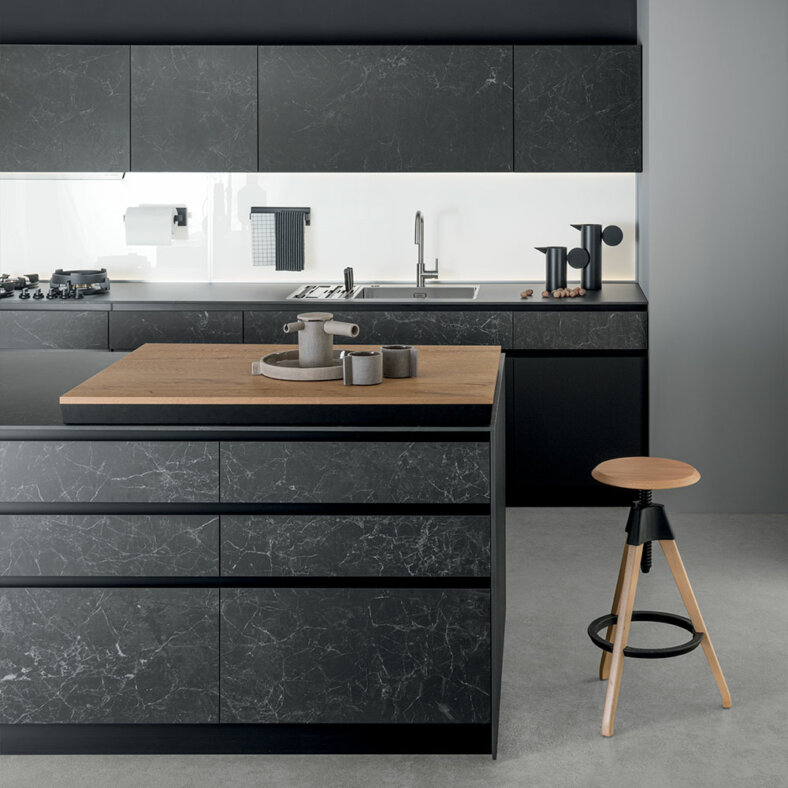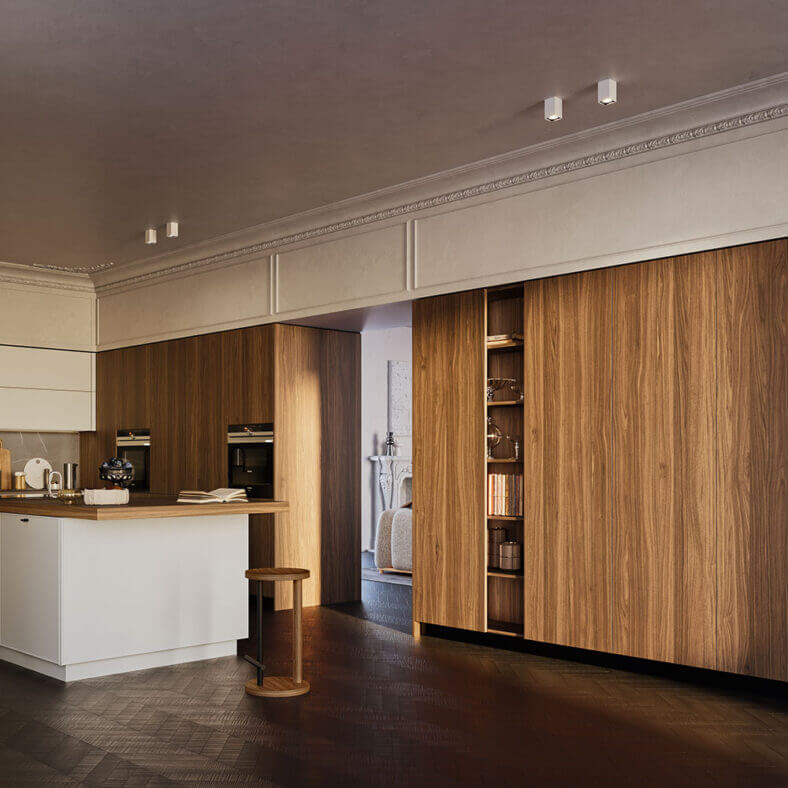Suggestions and guides
Carbon

CONTEMPORARY, TECHNOLOGICAL AND CUTTING EDGE
THE STUDIES UNDERTAKEN BY OUR DESIGN DEPARTMENT HAVE FURTHER REDEFINED THE KITCHEN BY INTRODUCING A TRULY UNIQUE MATERIAL TO THE INDUSTRY. THIS TECHNOLOGICAL MATERIAL GIVES THE DOORS OF ASPEN LIGHTNESS AND RESISTANCE, COMBINED WITH A MODERN AND STYLISH APPEARANCE.
What is carbon fibre?
It is a composite material, obtained from thousands of interwoven filaments of carbon made particularly resistant in two steps: first the fibres are laid in opposing overlapping layers, to form a weave, successively fixed in place by a layer of laminated epoxy resin that brings additional resistance.
Each C4K panel is formed of six layers of resin covered carbon fibre, using the Vacuum-Assisted Resin Transfer Moulding (VARTM) process, which guarantees a homogenous distribution of the resin to minimise aesthetic imperfections and defects, entirely eliminated by various steps of sanding and gloss painting. At the same time, this process, which occurs at high temperature (approx. 120°C), produces elements with a superior structural quality and durability over time.
Characteristics of carbon fibre
Carbon fibre was introduced to the kitchen by Doimo Cucine. It is generally employed in technologically advanced sectors, where resistance and lightness are essential, such as nautical design, sail boat design, sports and the aerospace industry, which demand extreme performance.
C4K carbon fibre panels used by Doimo Cucine possess the following characteristics:
- lightweight
- mechanical resistance
- durability
- elegance

C4K carbon kitchen doors
The sheets of carbon fibre used by Doimo Cucine are 3 mm thick and offered as one of the facing materials for Aspen doors. This means they are applied to frames in 100% recyclable aluminium, for a total thickness of 20 mm. Their sophisticated finish reveals the overlapping of filaments, visible as a subtle pattern, in an elegant colour that ranges between black and dark grey.

How to clean a kitchen in C4K carbon
To clean doors and panels in carbon fibre, it is sufficient to use a moist and soft cloth, followed by rinsing and careful drying. Eventual persistent stains can be removed using a neutral soap or glass cleaner and a cloth.
Avoid using:
- abrasive sponges
- steel wool
- abrasive products
- powder detergents
- acetone
- trichloroethene
- ammonia
- alcohol or alcohol-based products







